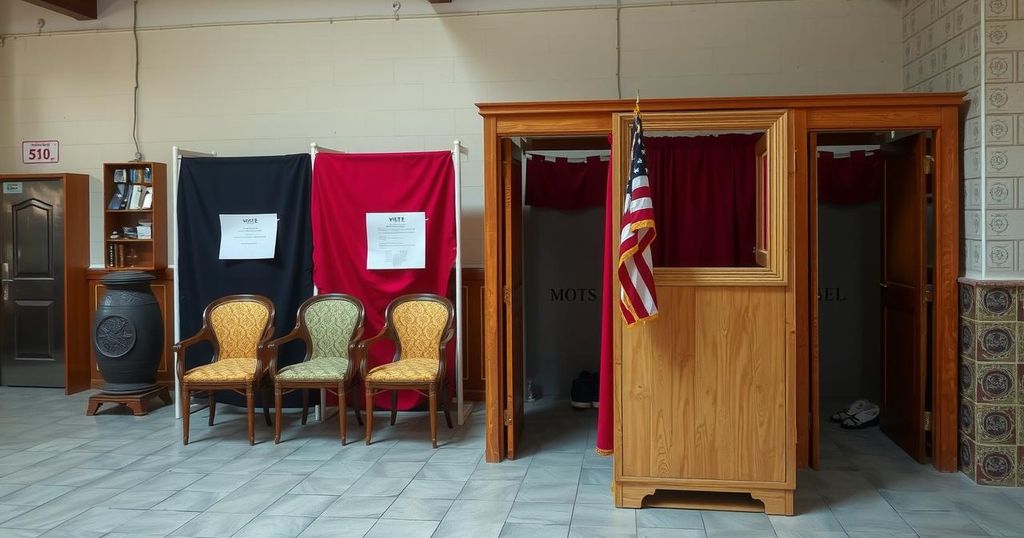Chad Votes in Key Election Amid Opposition Boycott and Low Turnout
Chad’s recent general election, conducted under military rule, experienced a low turnout of just 38 percent, attributed to opposition boycott calls deeming the electoral outcomes predetermined. President Mahamat Idriss Deby Itno aimed to demonstrate legitimacy despite claims from opposition leaders of fraud. The elections were held amid rising insecurity and with the government promoting a narrative of democratic transition, following decades of authoritarian rule.
Chad conducted its general election on a Sunday, which the government asserts is a significant milestone toward the cessation of military governance. Voter turnout was notably low, allegedly recorded at only 38 percent, influenced by a boycott urged by opposition parties. These parties, contesting the legitimacy of the electoral process, claimed that they had forewarned voters against participating, citing pre-determined outcomes. Despite the boycott, President Mahamat Idriss Deby Itno encouraged citizens to vote, urging a robust turnout to mark this “historic day”. Opposition leaders, however, expressed that the election results were already predetermined, casting doubt on the integrity of the electoral process.
Polling activities were characterized by a sense of disillusionment among many citizens, reflecting a widespread sentiment that legitimate democratic processes are absent in Chad. As the polling hasn’t concluded yet, reports indicated that soldiers, police, and members of nomadic communities already cast their votes a day prior for logistical convenience. they reported a record turnout, presenting a juxtaposition to the general apathy observed among the civilian population.
Further complicating the electoral landscape, the election transpired amid threats posed by Boko Haram in the Lake Chad region, alongside allegations of interference with the conflict in neighboring Sudan. The government frames these elections as a pivotal component in the shift towards democratic governance, following the ascension of President Deby in 2021 after the demise of his father, who held power for three decades.
Chad has been under military rule since 2021 after the death of former President Idriss Deby, who had led the country for thirty years. In this context, the government is attempting to transition towards democracy, exemplified by the recent general elections aimed at establishing new parliamentary and local assemblies. However, opposition parties have provided significant pushback, alleging systemic fraud and urging citizens to boycott the electoral process, contending that the elections serve primarily to entrench the current regime rather than facilitate genuine democratic reform.
In conclusion, the recent election in Chad illustrates the profound divisions and contentious political landscape in the nation. With low voter turnout and allegations of predetermined results, the legitimacy of the electoral process remains in question. The elections are framed by the government as a crucial step towards democratic transition, yet opposition voices continue to raise concerns over the authenticity and integrity of the political process. The effects of external conflicts and internal strife further complicate Chad’s path toward genuine democracy.
Original Source: www.myleaderpaper.com




Post Comment